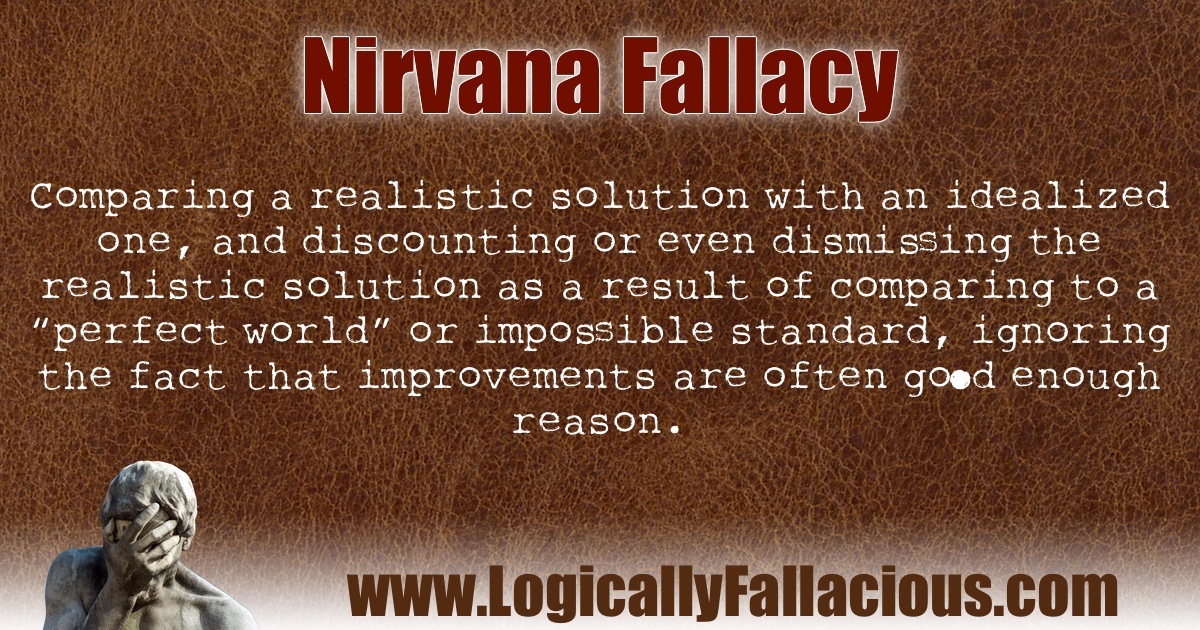(also known as: perfect solution fallacy, perfectionist fallacy)
Description: Comparing a realistic solution with an idealized one, and discounting or even dismissing the realistic solution as a result of comparing to a “perfect world” or impossible standard, ignoring the fact that improvements are often good enough reason.
Logical Form:
X is what we have.
Y is the perfect situation.
Therefore, X is not good enough.
Example #1:
What’s the point of making drinking illegal under the age of 21? Kids still manage to get alcohol.
Explanation: The goal in setting a minimum age for drinking is to deter underage drinking, not abolish it completely. Suggesting the law is fruitless based on its failure to abolish underage drinking completely, is fallacious.
Example #2:
What’s the point of living? We’re all going to die anyway.
Explanation: There is an implication that the goal of life is not dying. While that is certainly a worthwhile goal, many would argue that it is a bit empty on its own, creating this fallacy where one does not really exist.
Exception: Striving for perfection is not the same as the nirvana fallacy. Having a goal of perfection or near perfection, and working towards that goal, is admirable. However, giving up on the goal because perfection is not attained, despite major improvements being attained, is fallacious.
Tip: Sometimes good enough is really good enough.
